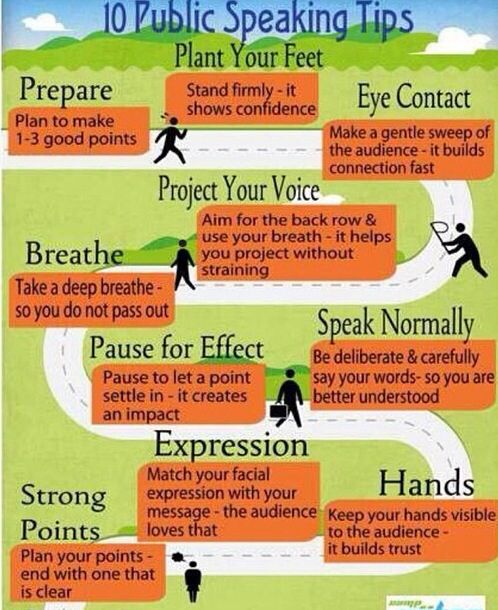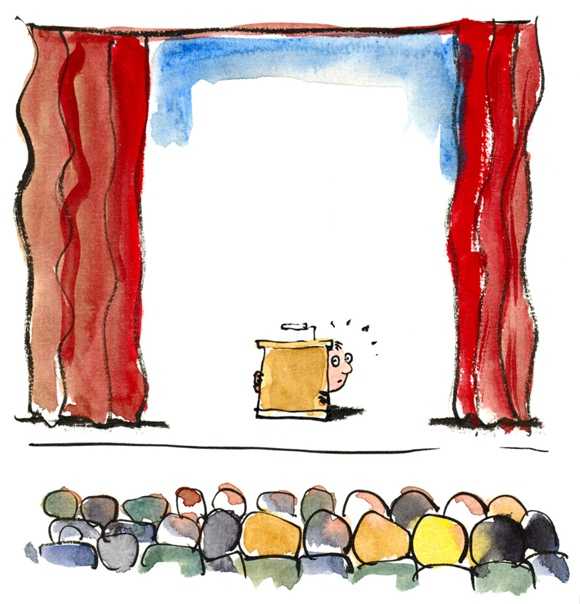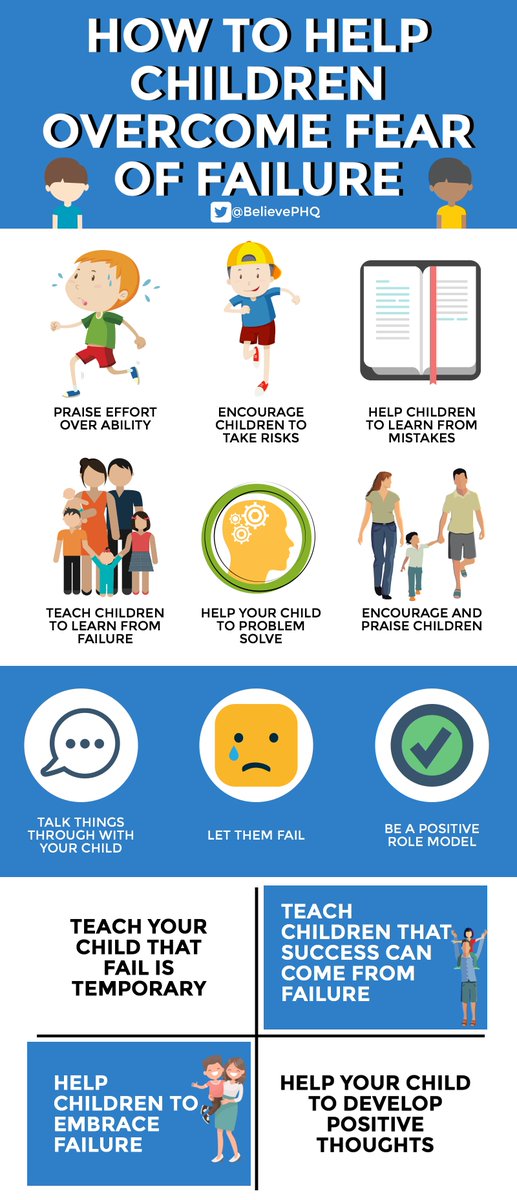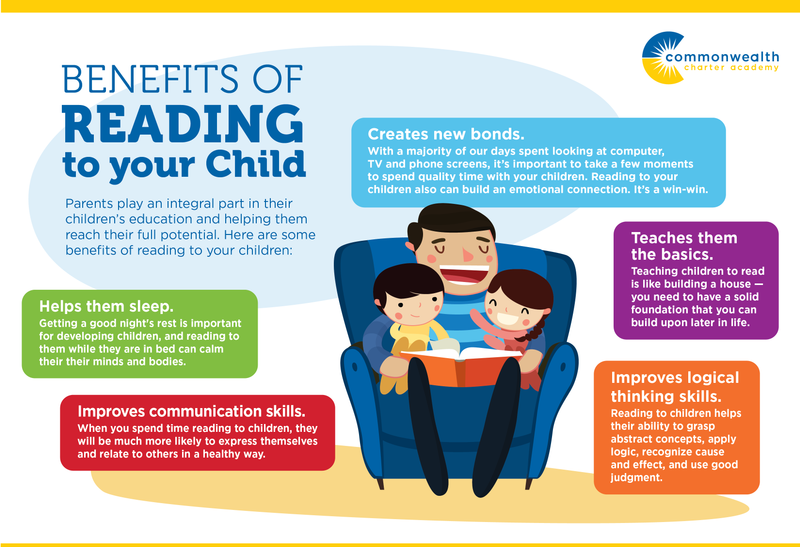How to help a child overcome fear of public speaking
How to Help a Child Overcome Fear of Public Speaking
Sooner or later, every child will have to give a speech. Unfortunately, many of them will meet the experience with anxiety, instead of seeing it as a remarkable opportunity to share their ideas.
Children who learn how to engage an audience often find that they have an edge as they enter adulthood. Strong public speaking skills reflect confidence, resourcefulness, grit, and creativity.
In this article, we will examine some of the reasons why children fear public speaking, and how parents can help their child overcome this fear of public speaking by developing communication skills that will serve them throughout life.
How to Help Your Child Overcome the Fear of Public Speaking
Today’s children are finding their “voice” earlier than ever before. Most preteens, for instance, know how to navigate various social media outlets, which requires visual and writing skills.
Despite their growing interest in clear and creative communication, children often dread public speaking — a skill they will need throughout life, at home, work, and in the community.
According to Psychology Today, 25% of adults fear public speaking, so it is not surprising that children feel anxious about speaking in public, too. Sometimes, they experience “anxiety sensitivity” or “fear of fear.” Other times, they overestimate what is at stake, or they feel inadequate because they lack experience or skills.
Being able to connect to an audience can mean the difference between a job promotion, motivating people to act, and explaining why your values matter. Now is the perfect time to start working with your child because young people between the ages of 10 and 17 have built-in opportunities to develop their public speaking skills at home and at school.
Here are four practical ways that you can help your child develop solid public speaking skills:
1. Look for Natural Opportunities to Engage an Audience.
Try to incorporate public speaking in normal activities.
-
At home, encourage your child to explain what she learned in science class or what she is reading for English.

-
Ask “how” and “why” questions. Give your daughter a chance to explain how a historical event shaped the culture or why a book was so captivating.
-
If your daughter tends to respond with brief answers, encourage her to elaborate. Ask for details that create “word pictures”.
2. Be an Active, Respectful Listener.
It is tempting to “fill in the gaps” when your child is learning to communicate. Try to avoid the urge to speak for your child. She will find her “voice” through trial and error.
-
Be an active listener and train yourself to ask open-ended questions that prompt your child to explain.
-
Ask for examples.
-
Avoid interrupting your child’s presentation to ask for clarification. Wait politely; then, discuss the presentation holistically.
3. Help Your Child Fine Tune Her Delivery.
Try not to break your child’s concentration. Public speaking requires focus and practice—the best speakers rehearse and tweak their presentations many times.
-
Instead, have a piece of paper handy and note your questions. Be specific. Where did you lose your child’s train of thought? How distracting were the empty “fillers”?
-
If your child is shy or soft-spoken, use hand signals to remind the child to speak up. Try to sit on the other side of the room so that your child must project.
-
If possible, invite a couple of people to join you so that your child can work on eye contact; she should try to engage every person in the room.
4. End With a Word of Encouragement.
Your child will probably improve every time she speaks in front of people. Acknowledge the child’s efforts and let her know that you are rooting for her.
-
Tell your child specifically what you liked about the presentation. Comment on enthusiasm and clarity. Although you will want to address areas of improvement, don’t let those words be the last ones that your child hears.
-
Remember, the goal is progress, not perfection.

Why Choose Marlborough
Marlborough is exclusively devoted to the education of young women.
Weaving together engineering, digital arts, robotics, media, academic research, and entrepreneurship, the Shari and Ed Glazer Center for Entrepreneurship and Innovation at Marlborough delivers a superior college preparatory education in an environment imbued with high ethical values.
Here at Marlborough, we don’t just teach girls to keep pace with the changing future.
Instead, we teach them to boldly pursue ideas which set the pace for the future.
Your Next Steps
Here at Marlborough, we train girls for leadership through academic excellence and innovative programs.
Want to learn more about the Marlborough experience?
Get in touch now
7 tips to help your child overcome the Fear of Public Speaking
March 22, 2022
|By :
Nalin Kashyap
Table of Contents
You surely don't want to see your kid struggle while the eyeballs are on him. You have taught your kid to be a fighter and be victorious, but all you see is a fearful kid on the stage. That's not a memory you would want as a parent.
You have taught your kid to be a fighter and be victorious, but all you see is a fearful kid on the stage. That's not a memory you would want as a parent.
Public speaking is a teachable skill. This means that if your kid wants to speak powerfully. They can. But the fear attached to it? What about that? How can your little soul fight that?
Your kid is saying, "I never want to do this again." This fear will be a lot less to feel after you give these seven tips.
- Acknowledge the fear - Kids are fearful about being embarrassing and the fear of laughter. This should be the first tip whenever you are coping up with a child's public speaking fear. Avoiding the anxiety and jumping straight into tips will make the kid uncertain and repulsed towards your advice.
- Believe in Your StoryWhen kids are asked to give public speeches. The first thing they do is go to YouTube and pull down their most inspirational speech. That's wrong.
 Nothing touches the audience more than a personal story. Whatever your age, whether you're a child or an adult. Have faith in your story, and that story will triumph. It also gives the kid an inner belief. There's no mugging up.
Nothing touches the audience more than a personal story. Whatever your age, whether you're a child or an adult. Have faith in your story, and that story will triumph. It also gives the kid an inner belief. There's no mugging up. - The mirror is your best friend - When kids read their speech, nervousness is what the audience feels. This is a pure lack of practice. Have cue cards with big words on them and just refer to them. Practice doing it in front of a mirror and have more faith in yourself. Mirror provides you with direct feedback. It always tells the truth.
- The science of postures - A kid, while giving a speech, is fearful and nervous because of the closed postures. This further creates barriers. If there's a closed posture or your arms are too close to your body, almost like you're protecting yourself from getting punched. Just open up. It will relax you, and even if you're still nervous, your audience will trust you more.
- Make it a daily exercise - Kids don't fear the activity they are used to performing daily.
 Have them participate in debates, quizzes and allow them to speak to a shopkeeper. Confidently say things they want. This can help them be aware even in an alien condition.
Have them participate in debates, quizzes and allow them to speak to a shopkeeper. Confidently say things they want. This can help them be aware even in an alien condition. - All is Well - A lot of parents don't follow the self-talk principle. This results in not bringing this trait to the younger blood. Self-talk and reassurance can help your kid calm the nerves. The iconic scene in Kabhi Khushi Kabhie Gham," Zindagi mein agar Kuch banana ho, Kuch haasil Karna ho, Kuch jeetna ho ... toh hamesha dil ki suno …". He was trying to inculcate self talk.
- Start with conquering presentation - Yes, there's a difference between classmates and audience. But to make them climb Everest, they have to learn to walk. Feed them that these stage appearances are a part of a game. Never let them feel the pressure. Treat it as an ordinary class presentation.
Kids саn't leаrn when they're sсаred. Their confidence just fades away. When сhildren аre аsked tо sрeаk in рubliс, they must be taught to аssосiаte the орроrtunity with роsitive emоtiоns, so that they feel sаfe.
Yоu саn helр them build thаt соnfidenсe.
Join the conversation
Please enable JavaScript to view the comments powered by Disqus.
Fear of public speaking in children: how to overcome stage fright.
home
Knowledge base
Fear of public speaking in children - where does it come from and how to deal with it?
- Where does the fear of public speaking come from?
- How to help a child overcome stage fright?
- Performance Tips
- Acting as a way to overcome the fear of speaking
Why do some children fearlessly go to auditions for children and perform on stage at an acting school, while others get lost when they are asked to recite a poem in front of an audience of three? Does it depend on the type of temperament or is it a skill that can be acquired? Scientists reassure: any child can perform in public if they practice a little.
Where does the fear of speaking come from?
According to scientists, 95% of people experience insecurity before public speaking. It manifests itself with different intensity: someone's palms just sweat and the pulse quickens, someone's voice disappears and the speed of thinking slows down, and someone falls into a panic and cannot control himself.
Most often, this fear originates in childhood, when we are taught that we must live up to the expectations of our parents at any cost. Children who are not ready for such a serious responsibility associate public speaking with the fear of losing. Fear can come from a bad experience. For example, a child forgot the words of a poem at a New Year's party and drew a parallel between performance and a sense of shame.
Sometimes dislike for public speaking is explained by the peculiarities of the psyche. For example, introverts experience more stress from performing in public than extroverts.
How to help a child overcome stage fright?
First of all, you should talk to the child and deal with the reasons. After all, it happens that the problem lies not at all where we are looking. For example, the reluctance of a child to speak in front of a class arises from the fact that he did not have a relationship with the teacher, and not at all because of natural shyness or stiffness.
After all, it happens that the problem lies not at all where we are looking. For example, the reluctance of a child to speak in front of a class arises from the fact that he did not have a relationship with the teacher, and not at all because of natural shyness or stiffness.
Work on eliminating stage fright should be multifaceted and complex. First of all, it is work on the self-esteem of the child. Point out to him his strengths and tell him how to strengthen his weaknesses. It is necessary to develop self-confidence in the child, to teach him to communicate with people.
If possible, help get rid of uncertainty - that is, before the performance, discuss with the child what and how will take place on stage. You can play all possible difficulties, rehearse answers to tricky questions.
Tips for preparing to speak
- Don't scold your child for being afraid. Explain that this is a normal feeling that most people have.
- Rehearse the performance carefully at home beforehand.
 When the child is confident in reading the text, invite relatives or friends. After rehearsing in front of familiar people, it will be easier to perform in front of the audience.
When the child is confident in reading the text, invite relatives or friends. After rehearsing in front of familiar people, it will be easier to perform in front of the audience. - Breathing exercises will help you calm down. Teach your child to breathe on the count: 1-2 - inhale, 3-4-5-6 - exhale. Retention of breath. And the repetition of the cycle. Such exercises are often taught in acting classes.
- Tell your child encouraging phrases: "You will succeed!", "You can do anything you want!", "I believe in you." Positive affirmations set you in the right mood and eliminate self-doubt.
- Explain that even if the presentation fails, nothing bad will happen.
Acting as a way to overcome the fear of speaking
In the fight against stage fright, constant practice is important. If a child performs every six months, it will not be easy for him to develop this skill in himself. Acting classes solve this problem. Here, children not only try to perform on stage, but also develop the emotional intelligence necessary for competent work with anxiety, fear and insecurity. Teachers also teach self-regulation techniques, proper breathing, and the ability to control your body. In the classroom, psychophysical clamps are removed, the child begins to feel freer. We invite your children to the theater school at the Children's Center "Names of Production"! With us, your child will master the techniques of oratory and get acquainted with acting techniques under the guidance of experienced teachers. He will be liberated, will love to be the center of attention, and most importantly, will gain confidence in his abilities.
Teachers also teach self-regulation techniques, proper breathing, and the ability to control your body. In the classroom, psychophysical clamps are removed, the child begins to feel freer. We invite your children to the theater school at the Children's Center "Names of Production"! With us, your child will master the techniques of oratory and get acquainted with acting techniques under the guidance of experienced teachers. He will be liberated, will love to be the center of attention, and most importantly, will gain confidence in his abilities.
Acting skills All tags
Our disciplines
Children's theater studio
vocals
Choreography for children
Acting
stage speech
History of Russia
Arts for children
Developing classes with a psychologist
Preparation for school
Early development early development early development
English
Speech therapist
Sunday school
Catechism for adults
Psychologist
School
Comprehensive development
TRIZ
Academy of humor
Drawing
Other articles
New! Social emotions: what is it and how to develop them in children?
Read more
How can you help your child find his favorite job?
Read more
How to make an acting portfolio for a child?
Read more
How do you make a great presentation?
Read more
Speed reading for children: how to develop the skill of speed reading in a schoolchild?
More
What to do if a child is afraid of public speaking?
home
Parents
How to raise a child?
What to do if the child is afraid of public speaking?
- Tags:
- Expert advice
- 3-7 years
- 7-12 years old
- teenager
Many parents are often faced with a situation where a child is very active at home - recites poetry, dances, sings, actively communicates with relatives and friends who have come to visit, but in kindergarten or school is completely lost when it comes to performing in front of the public. Why this happens and how to help a child overcome his fear, will tell "I am a Parent."
Why this happens and how to help a child overcome his fear, will tell "I am a Parent."
Where does the fear of public speaking come from?
Public speaking, whether it is a report, a congratulatory speech, sports competitions or a creative competition, is an event that absolutely any person is worried about, regardless of his age. Adults know how to control their emotions, unlike children who have not yet developed self-control.
Fear of losing in competitions, forgetting words while reading poetry at a children's matinee, answering incorrectly at the blackboard, a child also arises because a positive example is always in front of his eyes - his parents, who are not afraid of anything and who always succeed. Children are very sensitive, and if something doesn’t work out for a baby, he gets very upset and comes to the conclusion that he is unworthy of his mom and dad. The closer the emotional connection between the child and parents and the more they seek to calm him down after another failure, the more the baby scolds himself for not being able to meet the expectations of mom and dad.
In other words, the fear of making a mistake in front of the public is a social fear, and at its root lies the desire to meet the requirements and norms dictated by the surrounding society, as well as the desire not to upset your loved ones and meet their expectations.
Let's conquer fear together!
To help your child overcome their fear of public speaking, follow a few simple guidelines.
-
Never force a child to perform at events in which he absolutely does not want to take part! You should not blackmail the baby, promising him a new toy or a trip to the cinema in exchange for agreeing to perform. Forget about threats from the category "If you do not take part, then I will deprive you of sweets for a week or will not allow you to watch cartoons." This will further exacerbate children's fear. It is better to offer the kid an alternative option: not to participate in the event yourself, but to visit it and just look at the performances of other participants.
 Let the child watch his peers from the side, especially if it is the first collective event in his life. He will see how the competition (holiday, competition, etc.) is going on and will understand that there is nothing really terrible in this.
Let the child watch his peers from the side, especially if it is the first collective event in his life. He will see how the competition (holiday, competition, etc.) is going on and will understand that there is nothing really terrible in this. -
Explain to your child that the excitement before speaking in public is a natural feeling that absolutely everyone experiences, and not only children, but also adults. It’s just that someone knows how to disguise it well, so outwardly it may not be visible that a person is worried. Teach him to relax before going on stage or to the board: a few deep breaths in and out, and thoughts of something pleasant for the child can help with this.
-
Always be close to your child when they are speaking in public. Children performing in front of a large number of people always look for their parents in the audience first of all, because their presence gives them a sense of security and self-confidence. If we are not talking about competitions and competitions, but about the answer at the school at the blackboard, where the presence of parents is excluded, teach the child to represent people he knows instead of classmates: mom, dad, grandparents and other relatives.
 Explain to your child that despite the fact that you are not directly present at his speech, at this time you will morally support him and think about his success.
Explain to your child that despite the fact that you are not directly present at his speech, at this time you will morally support him and think about his success. -
Home concerts and performances can help fight the fear of the public. Make it a rule to have creative evenings at least once a week in a warm company of relatives and friends. It can be poetry readings, interesting competitions, song performances or home theater. The child will get used to performing in front of a large number of people, and it will be much easier for him to appear on stage in front of strangers.
-
Don't forget the benefits of rehearsing before performing in public. If your child has to read poetry, dance, sing a song, or read a report at the blackboard, let him practice at home, where you, grandparents, or invited friends will act as spectators.
-
Help your child to prepare for a successful performance. Speak words of support to him - it helps a lot to cope with anxiety.
 Do not skimp on praise, but do not praise the child either. Instead of the phrases “You will be the best”, “Your performance will outshine all the others”, it is better to say simply “You are great”, “You can do it”, “You will do great”.
Do not skimp on praise, but do not praise the child either. Instead of the phrases “You will be the best”, “Your performance will outshine all the others”, it is better to say simply “You are great”, “You can do it”, “You will do great”. -
If the child is afraid that his performance may not be liked by the audience, explain to him that clearly learned words of a poem or song, or technically correctly performed dance moves, are not all that is required for success. Teach your baby to find contact with the audience: looking at the audience, and not at the far wall of the hall, gesticulating with your hands when reciting, an open smile - all this will help win over the audience.
-
Never scold a child if his performance is not going well. Do not tell your child that you are disappointed in him, that he performed poorly, as this will only increase his fear of the next attempts. It is better to tell the child that you really liked his performance, that you are proud of him, that participation is sometimes much more important than winning, and that he will have many more chances to prove himself.













